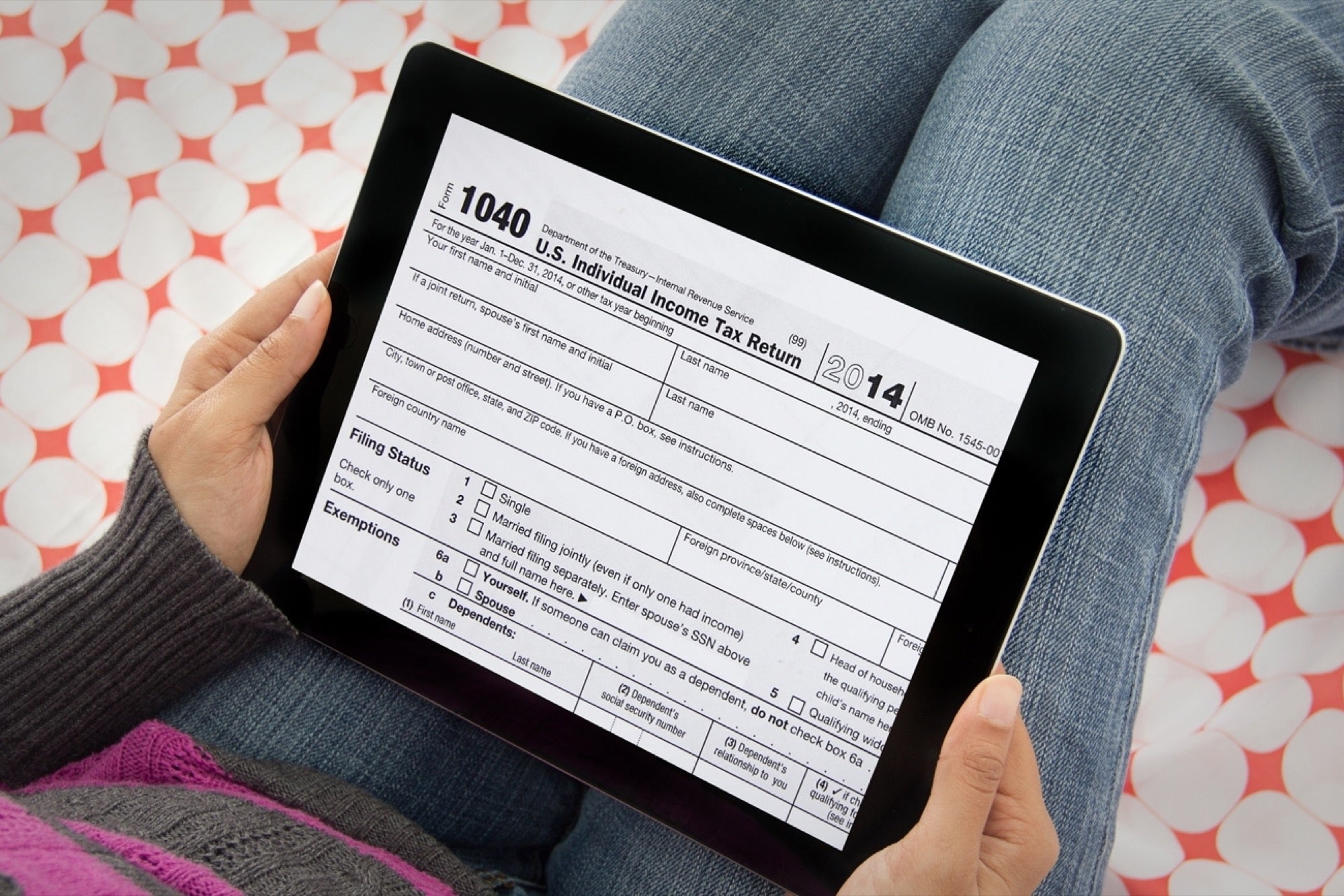Tips To Ease Small Business Tax Season Stress Be organized, and reach out for help when you need it.
By Chris Rush Edited by Dan Bova
Opinions expressed by Entrepreneur contributors are their own.

Are you stressed about tax season? It certainly breeds its own intense levels of anxiety for many business owners. Whether you outsource your tax preparation to an accounting professional or handle your taxes in-house, it pays to be prepared. Preparing for tax season in the right way can save you valuable time and arm you with useful information that can enhance your business's efficiency and success.
Related: 5 Top Tax Hacks for Entrepreneurs
As you embark on this annual business exercise, here are some steps you can take to streamline tax-related jitters:
Take stock of your financial situation.
Make sure the information you have about your employees and contractors is current and correct. Did anyone move, get married or have children? For employees, double-check items, such as employee name, address, social security number, lived-in and worked-in jurisdictions, paid time-off information (to determine whether appropriate withholdings or deductions were applied), status (active, terminated or on leave of absence), filing status (exempt or non-exempt), number of exemptions, year-to-date wages and taxes, and pre-tax year-to-date amounts, such as contributions to 401(k) and benefits plans.
Confirm independent contractor classifications.
The misclassification of employees as independent contractors is a major area of enforcement for government agencies. If you already work with independent contractors, evaluate current relationships since they may have changed over time (You may want to refer to the Internal Revenue Service common law requirements). Double check contractors' names, Taxpayer's Identification Numbers (TIN) (which is either their social security number or Employer Identification Number), addresses, state and local work locations, and earnings totals for each jurisdiction. Double check wages paid to employees and contractors (Form W-2, Form W-3, and Form 1099) and compile rent or property documents, income and expenses. Finally, examine reimbursements to employees and contractors.
Related: Will Trump's Tax Plan Benefit Small Businesses?
Organize your paperwork.
Keep your records organized so the preparation process can be more efficient. Should you be audited, you may not have to scramble to assemble your documentation. For your reference, this list includes forms that must be filed. It's a good idea to check the websites for your applicable state or local guidelines:
- Annually:
- Employer's Annual Federal Tax Return (Form 944); only file Form 944 annually if you do not file Form 941 quarterly
- Employer's Annual Federal Unemployment (FUTA) Tax Return (Form 940)
- Federal Wage and Tax Statements (Form W-2)
- Transmittal of Income and Tax Statements (Form W-3)
- Federal 1099-MISC form
- Federal 1096 form
- Employer information about health care coverage enrollment for their employees, such as Forms 1095-C and 1094-C if you are an applicable large employer
- One form for each employee to report health care coverage; provide Form 1095-C if you are an applicable large employer, or if you are self-insured, you will need to give your employee(s) Form 1095-B
- Some states require income tax returns
- Some states require unemployment tax returns
- Form 943 if you are in the agriculture industry
- Quarterly:
- Employer's Quarterly Federal Tax Return (Form 941)
- Some states require income tax returns
- Some states require unemployment tax returns
- Most local income tax returns need to be filed quarterly
Clarify exemptions, deductions, and rebates.
View your employees' 2016 earnings and deductions in your books. Bonuses are generally considered supplemental wages and are subject to federal taxes, as well as certain state taxes. In addition, you must account for certain fringe benefits, retirement plans and any other necessary adjustments to employee wage and tax amounts.
Related: New Tax Laws That Impact Small Business Owners in 2017
Think long term.
Make it a habit to follow these tips and remain organized. Understand your long-term business goals and make sure tax preparation reflects these goals by consistently updating your paperwork, tracking your employee and contractor base, and looking ahead to the next major milestone in business reporting. You may also want to consider including future leaders in the tax preparation process so they can familiarize themselves with exemptions, deductions and rebates when they take on a leadership role.
Don't go it alone.
The regulations and paperwork surrounding tax preparation can be daunting. Don't be afraid to ask for help or use additional resources to inform your decisions. Outside consultation can often be the easiest quickest option, and at the risk of misclassifying workers and incurring a penalty, sometimes more cost effective.
Devoting the time and resources necessary for tax preparation can help you start 2017 on the right foot. Organizing and evaluating the status of your business early will ensure that tax preparation runs smoothly and accurately.










